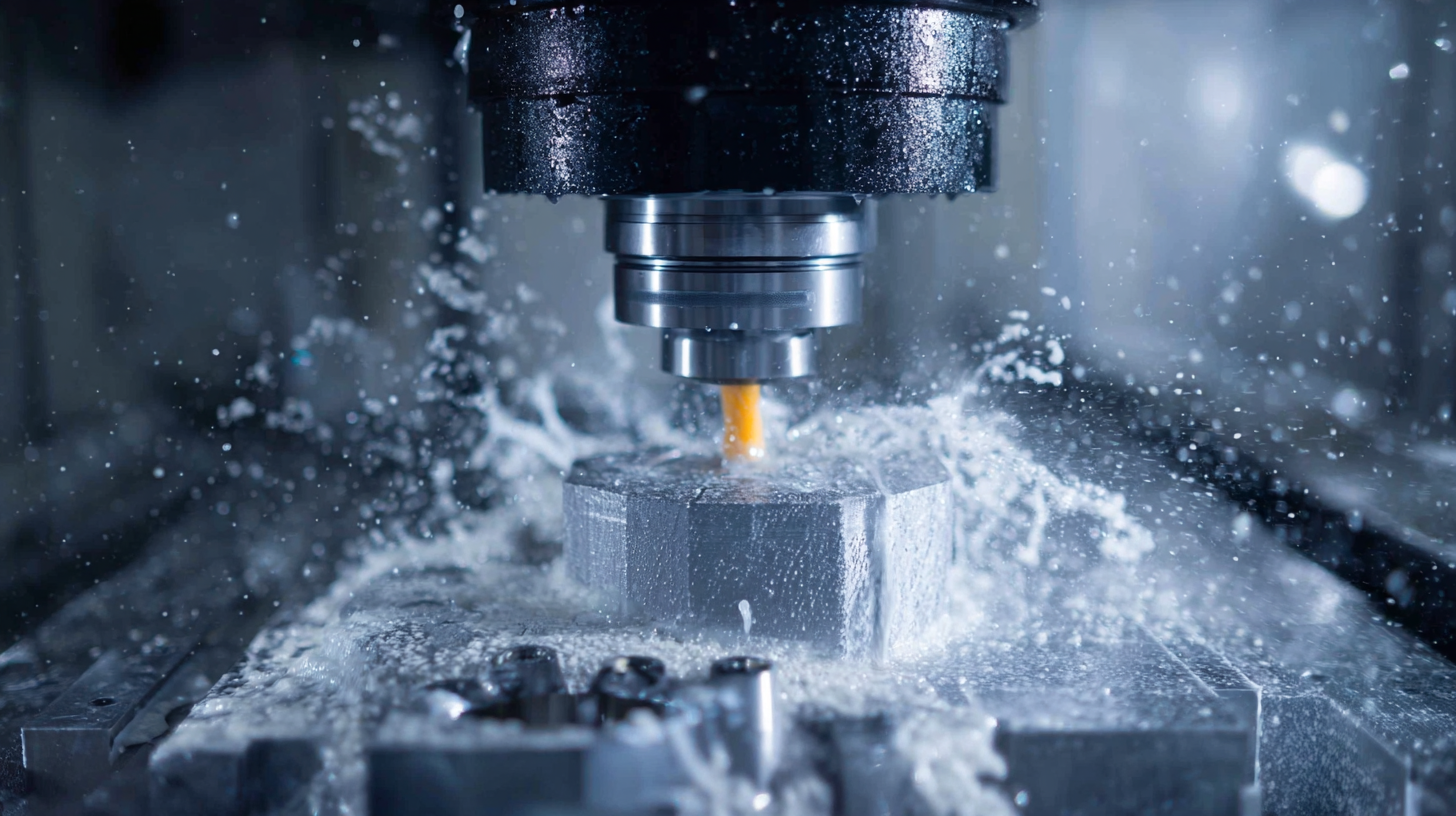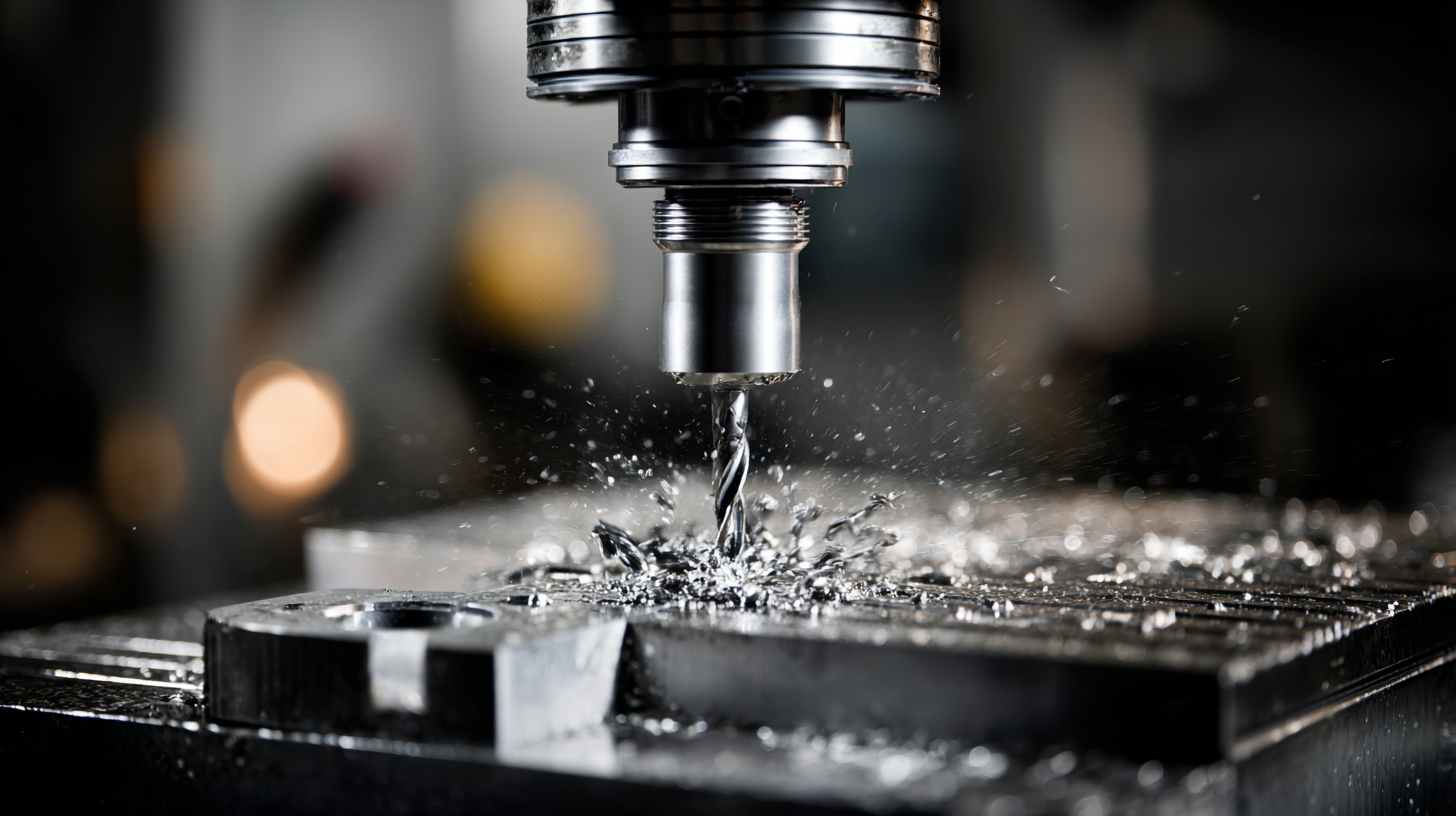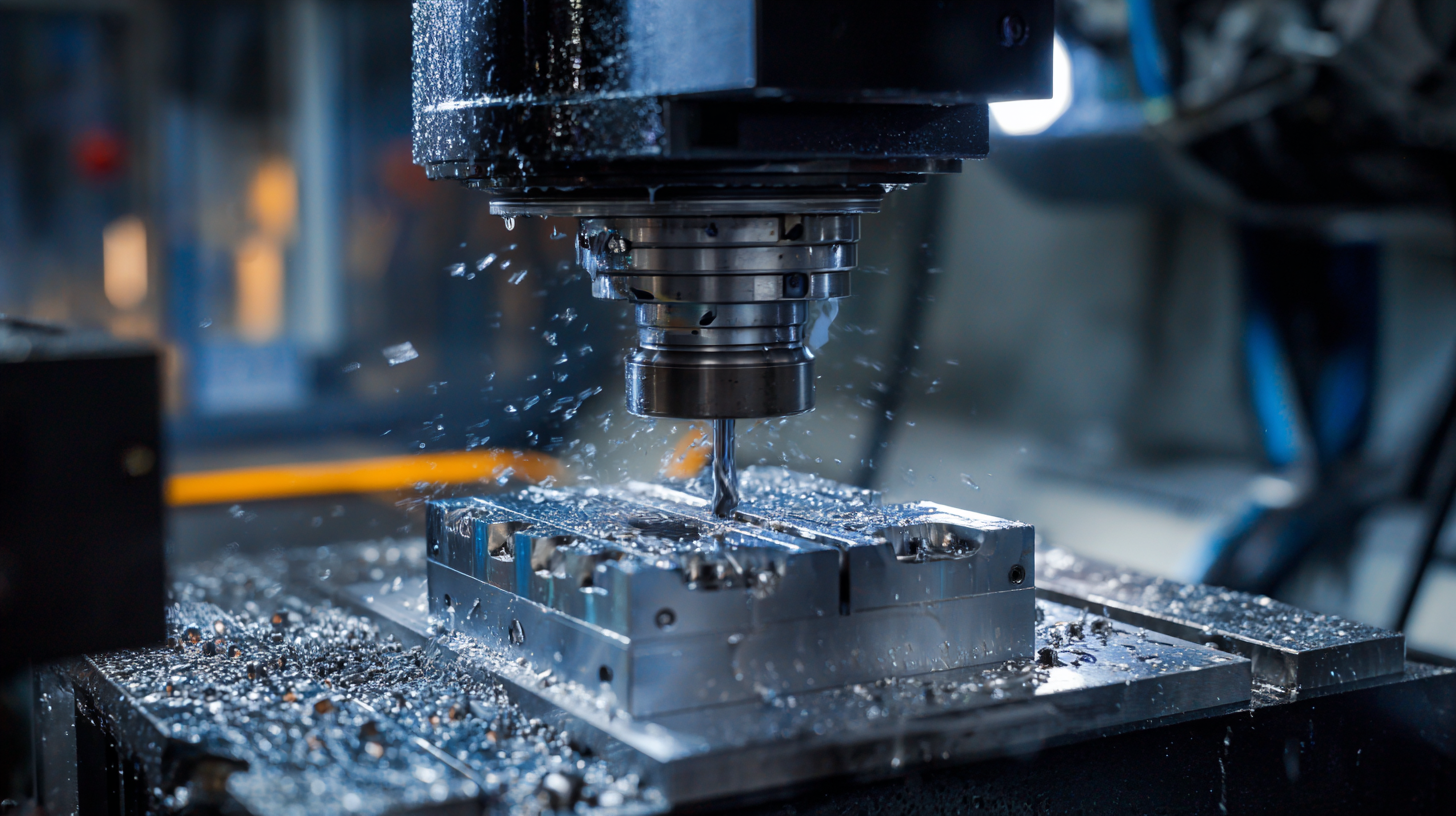In the rapidly evolving landscape of manufacturing, CNC machining has emerged as a pivotal technology, enabling precision engineering and efficient production processes across various industries. As businesses strive to stay competitive in the market, particularly with projections anticipating substantial growth by 2025, selecting the right CNC machining manufacturer becomes increasingly critical. This choice not only influences the quality and efficiency of the final products but also impacts overall operational success. Companies must navigate a myriad of options, balancing factors such as cost, capability, and customization to find tailored solutions that meet their specific needs.

In this blog, we will explore essential considerations for identifying the ideal CNC machining partner, helping you make informed decisions that align with both current industry standards and future technological advancements.
CNC machining has become an essential component across various industries, from aerospace to medical manufacturing. According to industry reports, the global CNC machine market is projected to grow from approximately $101.22 billion in 2025 to an astounding $195.59 billion by 2032, achieving a compound annual growth rate (CAGR) of 9.9%. This surge reflects increasing demands for precision and efficiency in manufacturing processes, highlighting the critical role CNC machining plays in modern production environments.
Additionally, the CNC machining landscape encompasses various technologies and applications. The CNC machining center market, specifically for five-axis systems, is expected to experience steady growth, with market value rising from $4,081.68 million in 2025 to $4,501.04 million by 2033. The rise in utilization of CNC machines for cutting, welding, and engraving across multiple sectors emphasizes the necessity for tailored solutions to meet industry-specific challenges. The integration of advanced CNC capabilities not only enhances operational efficiency but also boosts overall production capabilities, driving growth across the board in the manufacturing domain.
| Consideration | Description | Industry Applications | Machining Types |
|---|---|---|---|
| Quality Assurance | Ensuring high-quality standards, certifications, and inspections. | Aerospace, Automotive, Medical | CNC Milling, CNC Turning |
| Technical Expertise | Experience and proficiency in CNC programming and design. | Electronics, Defense, Robotics | CNC Laser Cutting, CNC Waterjet Cutting |
| Customization Capabilities | Ability to offer tailored solutions and specific designs per project. | Energy, Aerospace, Industrial Machinery | CNC Routing, CNC EDM |
| Lead Times | Efficiency in project turnaround and delivery timelines. | Consumer Goods, Medical Devices | CNC Swiss Turning, CNC Grinding |
| Cost Competitiveness | Providing cost-effective solutions without compromising quality. | Construction, Furniture Manufacturing | CNC Plasma Cutting, CNC Slicing |
When selecting a CNC machining manufacturer,
addressing common issues related to quality control is paramount.
Quality control (QC) ensures that products meet defined standards throughout the manufacturing process.
Effective QC strategies help identify defects early, and with advancements in technology, integrating AI
into CNC machining processes can significantly enhance these efforts. AI facilitates real-time monitoring of production parameters,
ensuring compliance with quality metrics and enabling quicker adjustments to maintain precision.
Another challenge faced in CNC machining is the dimensional accuracy of components.
Recent research highlights the importance of measurement techniques during the finishing process to ensure high precision.
Manufacturers should implement robust QC methodologies that integrate advanced measurement tools, focusing on maintaining
geometric tolerances that meet industry standards. As customer expectations for quality rise, coupled with the increasing
complexity of products, manufacturers must adopt tailored solutions that address these challenges, ultimately enhancing
their competitive edge in the market. By embracing emerging technologies
and rigorous quality standards, CNC machining manufacturers can deliver consistent, high-quality products that meet client demands.
When selecting the right CNC machining manufacturer, there are several key factors to consider to ensure that your specific needs are met. One major factor is the manufacturer’s experience and expertise in your particular industry. According to a recent survey by MarketsandMarkets, 60% of companies reported that choosing a manufacturer with specialized experience greatly enhanced project outcomes. This highlights the importance of looking for manufacturers that have a proven track record in your field, be it automotive, aerospace, or medical devices.

Another crucial aspect is the technology and capabilities offered by the CNC manufacturer. Industry reports indicate that advanced CNC machines and technologies can lead to a 30% increase in production efficiency. Therefore, it's essential to assess whether potential manufacturers invest in the latest equipment and software that can accommodate complex designs and high-volume production.
Tip: Always request samples of previous work and case studies relevant to your requirements to gauge their capability.
Additionally, communication and customer service play vital roles in the manufacturing process. Establishing a strong communication channel can mitigate misunderstandings and lead to smoother project execution. A study conducted by the Manufacturing Institute found that effective communication reduced project delays by 25%.
Tip: Evaluate prospective manufacturers by conducting interviews to assess their responsiveness and willingness to collaborate on your specific needs.
In the competitive landscape of CNC machining, the importance of custom solutions cannot be overstated. Tailored approaches not only enhance product quality but also improve operational efficiency. As manufacturers seek to maximize precision and minimize costs, integrating customized components has become a vital strategy. According to industry reports, the global CNC machining market is projected to grow significantly, fueled by a rising demand for bespoke manufacturing solutions across sectors like aerospace and healthcare.
Recent advancements in technology, particularly in additive manufacturing, highlight the potential for CNC manufacturers to innovate. The integration of digital twin technology allows manufacturers to synchronize real and digital processes, enhancing accuracy and reducing waste. For instance, manufacturers can develop customized hip stems using electron beam melting techniques, addressing the specific anatomical needs of patients. Such tailored strategies are not only essential for meeting customer expectations but also play a critical role in driving efficiency within production cycles.
Furthermore, companies are increasingly offering on-demand solutions that cater to unique client requirements. The expansion of custom manufacturing services underscores the shift toward personalization in production. By leveraging advanced techniques such as hybrid additive manufacturing, manufacturers can improve product functionality and ensure compliance with stringent industry standards. This commitment to creating tailored solutions positions CNC machining firms as leaders in delivering high-quality, bespoke products that meet the dynamic needs of the market.
When selecting a CNC machining manufacturer, evaluating their capabilities through certifications, technologies, and expertise is essential. According to a report by the International Organization for Standardization (ISO), over 1.5 million organizations across 180 countries are certified to ISO 9001, which sets quality management standards. A manufacturer that holds this certification demonstrates a commitment to quality control and continuous improvement, assuring clients that their machining processes meet rigorous international standards.

In addition to certifications, the technologies employed by a manufacturer play a crucial role in their capability to deliver tailored solutions. A survey by Gardner Research indicates that nearly 60% of manufacturers have adopted advanced technologies such as CNC milling and 3D printing, enabling them to produce complex parts with precision and efficiency. Furthermore, the expertise of the workforce is a significant factor; as per a study published by the National Institute of Standards and Technology (NIST), companies investing in skilled labor see a 15-20% increase in productivity. Such insights underline the importance of thoroughly vetting potential manufacturers not just for their technology, but also for the experience and qualifications of their teams.
